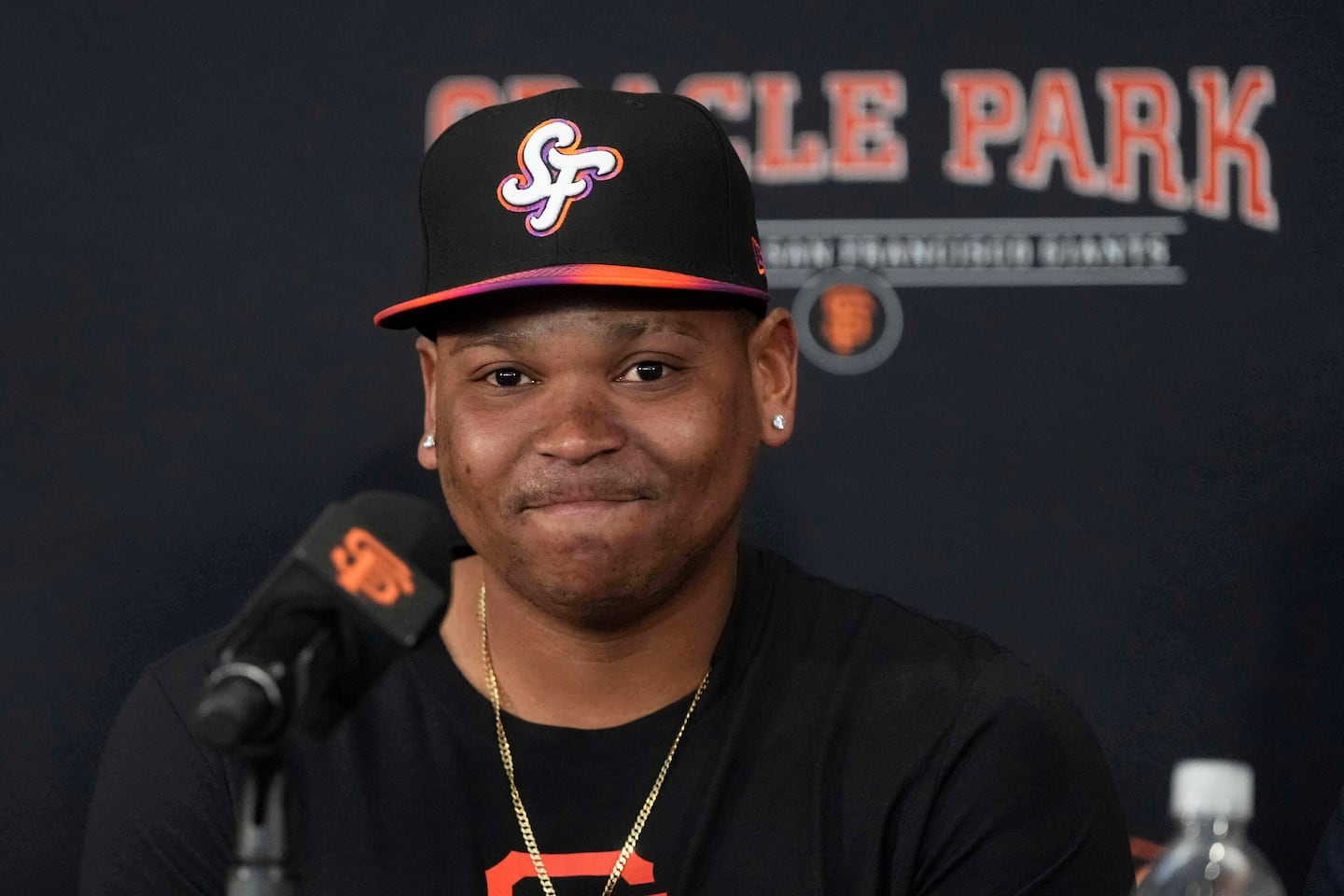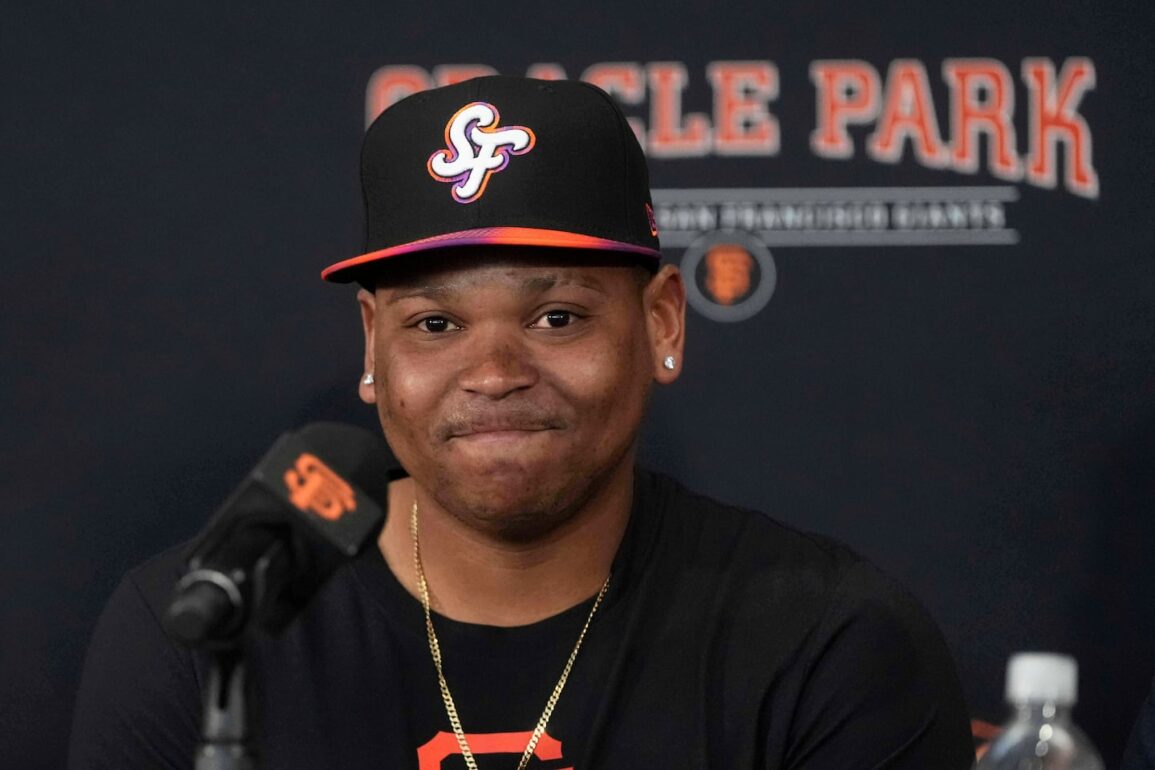
Like a pair of binoculars, time makes clear the view of a blurry or distant picture. The lens of time will reveal in sharp relief whether the baseball bartering of the Red Sox in the Rafael Devers trade was better than when getting swindled swapping away Mookie Betts and Chris Sale.
After determining their hand was forced by Devers’s refusal to metaphorically play ball by playing first base, the Sox relieved themselves of his hassle and his salary, sending him to the San Francisco Giants on Sunday for reliever Jordan Hicks, young starter Kyle Harrison, and prospects James Tibbs III and Jose Bello.
But there’s one element of the Red Sox’ return for the defiant DH that is already proving annoying. It’s the idea that a significant part of what the Sox got back for Devers was the financial freedom to improve the team. The Giants claimed the remainder of Devers’s 10-year, $313.5 million extension, the outstanding $16.6 million he’s owed this season, plus the $254.5 million left on the contract.
Please. While Devers may have been overpaid for a player who didn’t play the field, we don’t need to pass the collection plate for the Red Sox to field a winner. We don’t have to pretend his contract was preventing one of the most well-heeled teams in baseball from improving the 2025 club or pursuing upgrades this offseason. Apparently, collective amnesia set in regarding this team waving an estimated 15-year, $700 million offer at Juan Soto this offseason with Devers on the roster.
Don’t fall for the Fenway False Choice. Don’t let the club off the hook for the right-now return by engaging on their terms and trumpeting financial flexibility as part of the compensation for Devers. Don’t submit to the self-imposed financial management measures of the Red Sox. They’re a choice, not an inescapable obligation like filing taxes.
Having Devers on the books and upgrading the team at the trade deadline or next offseason doesn’t represent an either/or proposition for a team with the resources of the Red Sox. It never will.
Yet, people perpetuate this opportunity cost canard. This corner received multiple emails imploring that we can’t judge the deal until we see what the Sox do with their Devers windfall.
It’s never ideal to pay someone to perform in another uniform, and the Sox have done too much of that over the years. The latest example: subsidizing Sale winning the Cy Young last year for the Braves with $17 million.
Acting like baseball DOGE and eliminating waste, fraud, and abuse of principal owner John Henry’s money (Henry also owns the Globe) is an understandable goal for Sox CEO/president Sam Kennedy and chief baseball officer Craig Breslow.
But you receive credit for it on business terms, not baseball ones. That part of the deal doesn’t benefit the team. It benefits the franchise’s balance sheet. Repackaging it as a baseball attribute is specious.
Yet, the Sox were happy to lean into that narrative during their Sox-planation (copyright Adam Jones of WEEI) of the deal Monday, referencing the “resources” obtained that they could reinvest in the roster.
Any talk about the deal being a salary dump was forcefully nixed. But Breslow referenced “the ability to package some of the resources and fill some voids in the roster,” talking about why the deal is beneficial beyond just cutting Devers loose.
“Yeah, I think we’re absolutely going to look at the best use of those resources and could put that to use as early as the 2025 trade deadline,” said Breslow.
Sox historians can point to the great Dodger Blue Bailout of 2012. The Sox dumped more than $260 million of salaries on the Los Angeles Dodgers, using the pyritic allure of Adrian Gonzalez to rid themselves of cash-for-clunkers Josh Beckett and Carl Crawford. The Sox repurposed part of the savings on mid-tier deals for seven free agents, none longer than three years. The Magnificent Seven helped the Sox to an unlikely World Series title in 2013.
Breslow was a member of that club. He should also recall the Sox believed they had cracked the code on cost-efficient contention, only to endure back-to-back last-place finishes in 2014 and 2015. Breslow was on those teams, too.
Baked into being the Red Sox are two great competitive advantages — wielding resources only a handful of clubs are able to and absorbing contracts and costs that would cripple most clubs.
The Sox have largely ceded those advantages since they dipped into their wallets for a team-record payroll of $243 million in 2019, trying to defend their last World Series title, costing them an additional $13.4 million for exceeding MLB’s competitive balance tax. They’ve exceeded the CBT just once since, in 2022, when they should’ve gotten under with a full sell-off.
They’re choosing to fight with one hand tied behind their back in the name of sustainability. They don’t need to redirect resources to construct a winner.
Let’s set the record straight: the Sox aren’t cheap. Even if they don’t “reinvest the resources” from the Devers trade this season, they’ll be suggestively whispering in the ear of the CBT threshold of $241 million with their payroll intentions. No, they’re just averse to long-term, lucrative deals.
Even if the Sox wanted to do a mega-deal with Devers’s money, who are the stars coming up in free agency or available via trade to spend on? There’s no Shohei Ohtani, Aaron Judge, or Soto headlining this free-agent class or in the 2027 shopping catalogue.
Re-sign Bregman, who sports an opt-out, you say? The idea of signing him in the first place was to pair his bat with Devers in the middle of the lineup, granting the team passage on the playoff express. Any claim otherwise is revisionist history.
We don’t have to stat pad the trade by feigning the Sox needed to deal Devers or they would be digging through couch cushions at Fenway to find a way to fill roster holes for years to come.
The Sox are free of Devers, but spare me about the resources they freed up as part of their liberation.
Christopher L. Gasper is a Globe columnist. He can be reached at christopher.gasper@globe.com. Follow him @cgasper and on Instagram @cgaspersports.
This post was originally published on this site be sure to check out more of their content.







